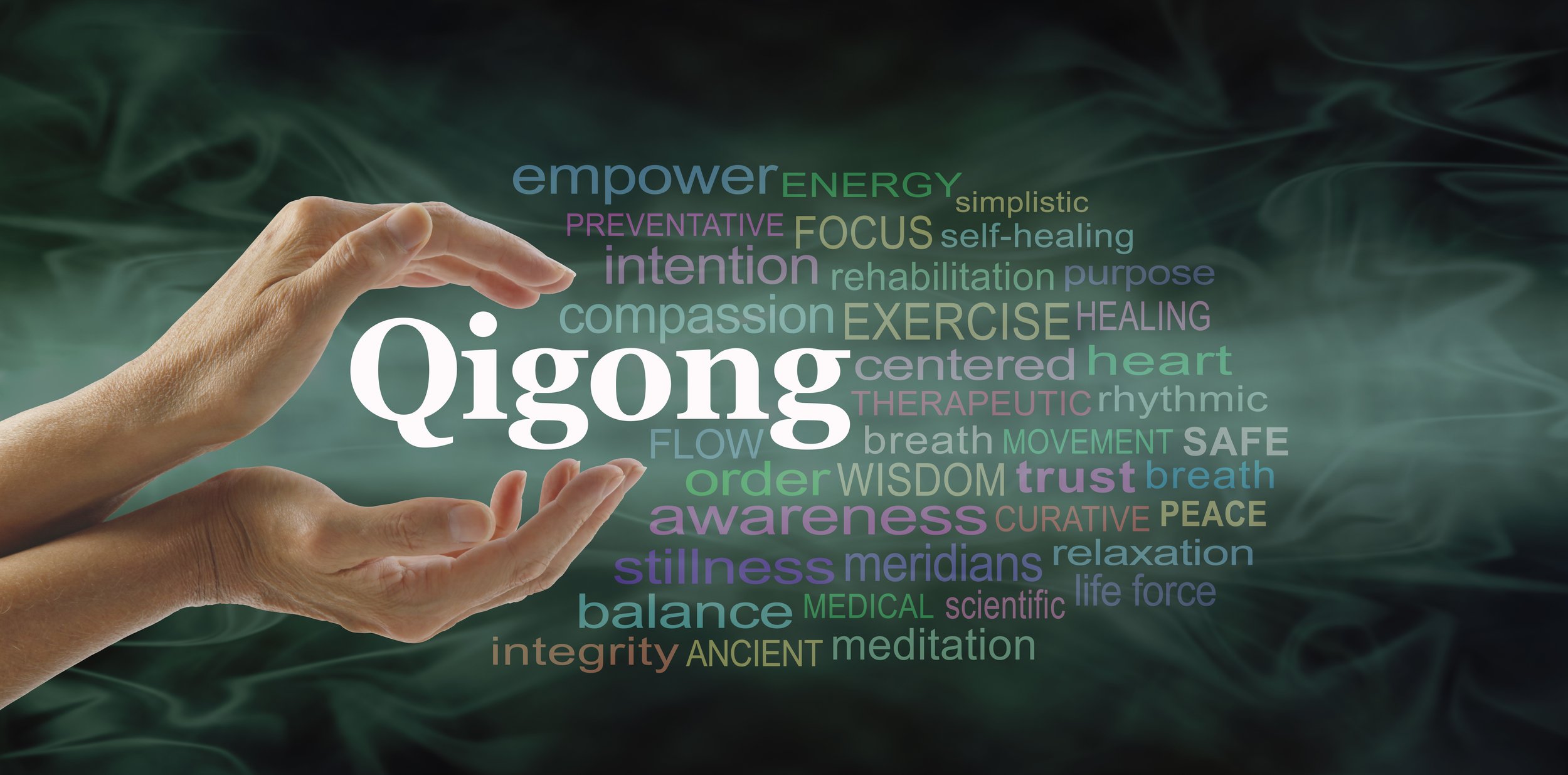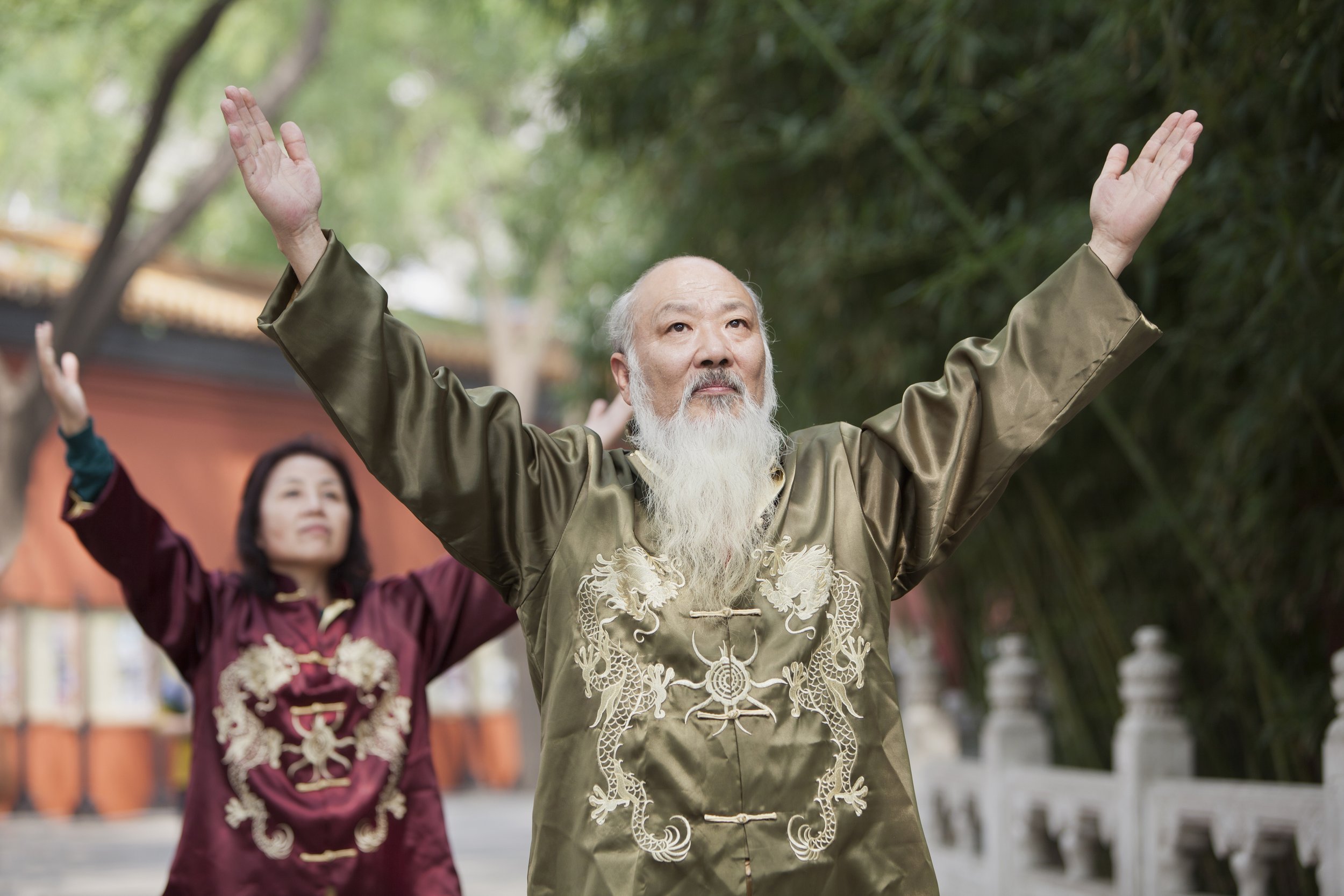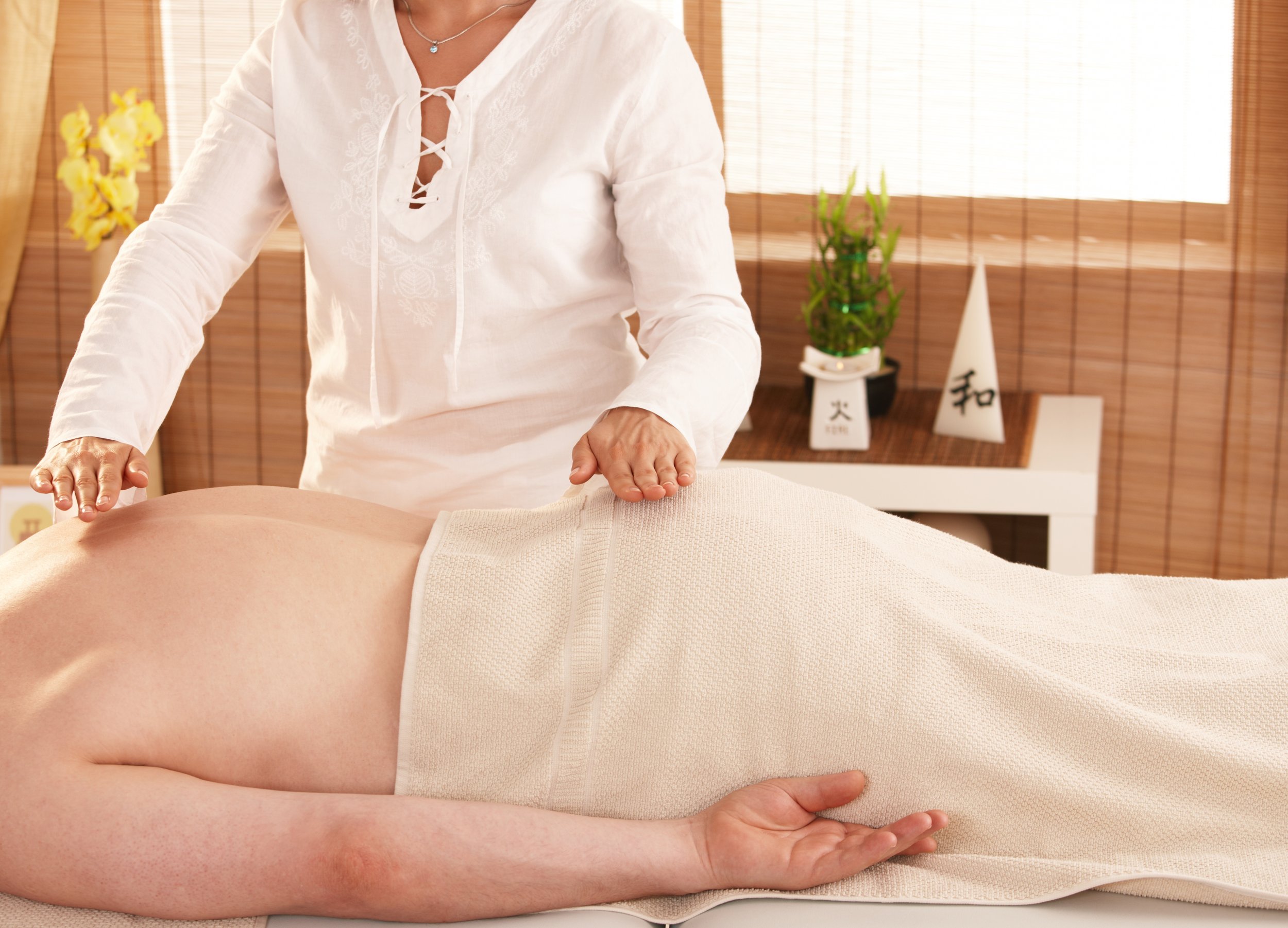Qigong
has been around for thousands of years. The first recorded evidence to show that the practice was alive and part of Chinese culture dates from the Zhou dynasty in the fourth century B.C.E.
Qigong is a form of gentle exercise that can be used for self-health, medical treatment, personal growth and even, spiritual development.




Health and Vibrance
Flexibility and Vitality
Qigong consists of two words: qi (energy) and gong (skill). Taken together these words suggest a practice oriented towards regulating physiology. And, in fact, qigong is just such an exercise.
It consists of gentle movements alternating with some periods of stillness. There are hundreds of styles but they all aim to integrate body movement, breath and thought leading to improved health and a more resilient, upbeat outlook on life.
Medical Therapy
Adjunct or Primary Treatment
The roots of qigong reach back five thousand years to ancient China. This form originated primarily from early attempts to preserve health and prevent illness.
Over the centuries, it evolved as part of Traditional Chinese Medicine. In modern times, western research has validated many of its medical benefits. So much so that this approach is now called Chinese Medical Qigong, a branch of medicine that receives government sponsorship and much research.
Personal Growth
Strength, Good Luck, Peak Performance
Want more than merely coping with the daily grind and getting by? Qigong offers you an avenue to the stars—this ancient skill provides a means to realize your most important aims and goals. Not many other methods can make such a claim. But qigong can.
Being the very best you can be and achieving great success in your chosen path already seems like a windfall—and, it is. Yet, qigong can bring further gains: a way to develop intuition and even a way to activate spiritual qualities and awareness.
Qigong Basics
Qigong was first clearly applied for spiritual pursuits by Daoists over two thousand years ago. Their goal? Cultivation of health, longevity, wisdom and spiritual maturity. These still sound like good objectives and targets to pursue.
The first step on such a track would be to learn the fundamentals of what qi is, how to sense it and then how to manipulate it. We have a series of introductory videos that you might enjoy and find useful. They cover the basics in sufficient detail to get you going in earnest. Here’s the link: Qigong Videos for PBOM.
Of course, you can surf through the endless qigong videos and teachings on the web, too. Whatever works for you best is the best choice. Just check around a while before settling on the first pretty face you meet. This is a good policy for dating and likewise for learning an important skill that can serve you all the way along the path of life.
Advanced Qigong and Daoist Medicine
If you get really motivated and begin to achieve intermediate levels of skill then you might check back in for some qigong consultation sessions. We can offer you some tips and practical advice about advanced qigong and Daoist medicine (a more spiritual form of qigong that requires extra effort to learn and master).
Most folks don’t need these skills and would never invest the time to learn them, even if they understood how valuable this art really is. Is it? It is. Why so? The practice borders on magic and through the effort of mastering the related skills, a person’s life truly becomes worth living, in every good sense. You don’t have to be Daoist, or anything in particular, to learn qigong.
However, to learn the more advanced levels, it helps for you to understand some of the basics behind Chinese Medicine (the theory that acupuncture rides upon). We can teach you that as well, if you find the interest. Learning some of the basics behind Daoism also helps but again only applies for real campers—those who seek excellence in their qigong and, even, in their spiritual pursuits (such as neidan, a qigong meditation very similar to yoga). We can also help you with these very obscure advanced techniques.
For a glimpse at what all these advanced practices are about and why they might matter, you might like to briefly check out the following webpage that we developed for advanced practitioners of qigong and yoga. Here you go: Spiritual Qigong and Yoga.
Again, it all sounds mysterious—partly, because it is—but really, the ideas and techniques are grounded in common sense and apply for every stage of life and every walk of life. In fact, if I had just one wish, I would wish for everyone on the planet to learn a couple of these so-called advanced techniques: a simple breathing skill and an intermediate-level qigong skill. That’s bread and butter stuff and not mystical mumbo-jumbo. Anyway, if you have questions about the website, qigong, or how a consultation (online or in-person) works, just send a note via the Contact page and we will be glad to help you out.